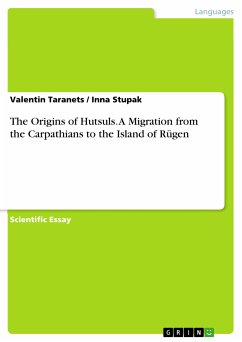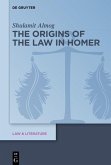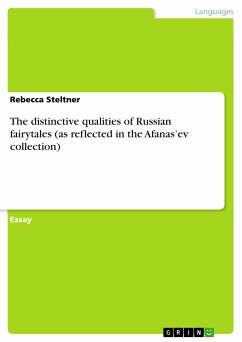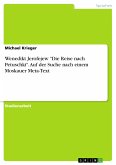Scientific Essay from the year 2016 in the subject Russian / Slavic Languages, grade: 2,0, , course: Lehrstuhl für germanische und orientalische Sprachen, language: English, abstract: The article presents the author’s considerations regarding the origin of Hutsuls, which is believed to stem from Galician tribes in the Carpathian region. After their migration to the island of Rügen, part of the Galicians returned to the Carpathians and went up to the mountains. They are traditionally referred to as Hutsuls-highlanders (shepherds) as opposed to Podolyan Galicians (Ruthenian). The oldest studies on the origin of the word hutsuly include the article written by Polish researcher K. Milevskiy, who derived this ethnonym from the verb ʻroamʼ. In this situation, in our opinion, a special approach is required, which would give us the opportunity to extract the semantic units from the existing form hutsuly, and allow us to view their origin from primary sources. In our observations, we follow three positions on ethnonim hutsuly, to which R. F. Kayndl drew attention. Based on the research done by V. T. Kolomiec and our observation, we conclude, that in ancient times the structure of words matched morphemic and phonetic (syllable) limit. In the relation to the reviewed ethnonym we can distinguish the syllables hu-tsul in which under the stress is prefix hu-. Since in ide. linguistics it is believed that prefix forms of lexemes are secondary to the root forms, we can assume the existence of a derivation of meanings in the ethnonym hutsuly: ‘farmers’ → ‘mountainous (farmers, shepherds)’. Previous remarks give us a reason to examine the origins of protoname of tribe of Hutsuls from the initial ide. root *ƙṷel-, which could be seen in the ancient ethnonym Halychany (without prefix hu-), related to the said root in the word hutsuly.
Bitte wählen Sie Ihr Anliegen aus.
Rechnungen
Retourenschein anfordern
Bestellstatus
Storno









